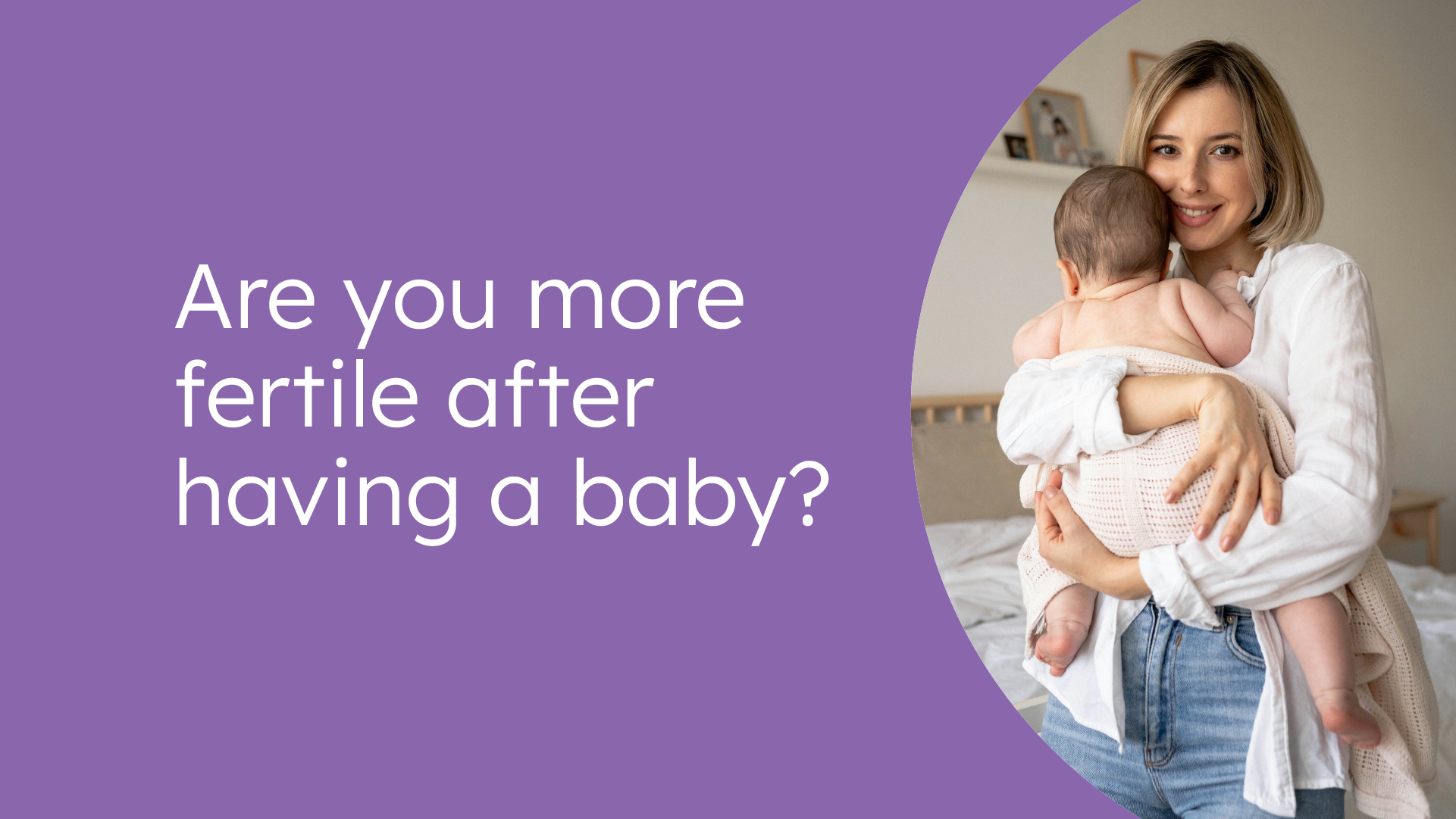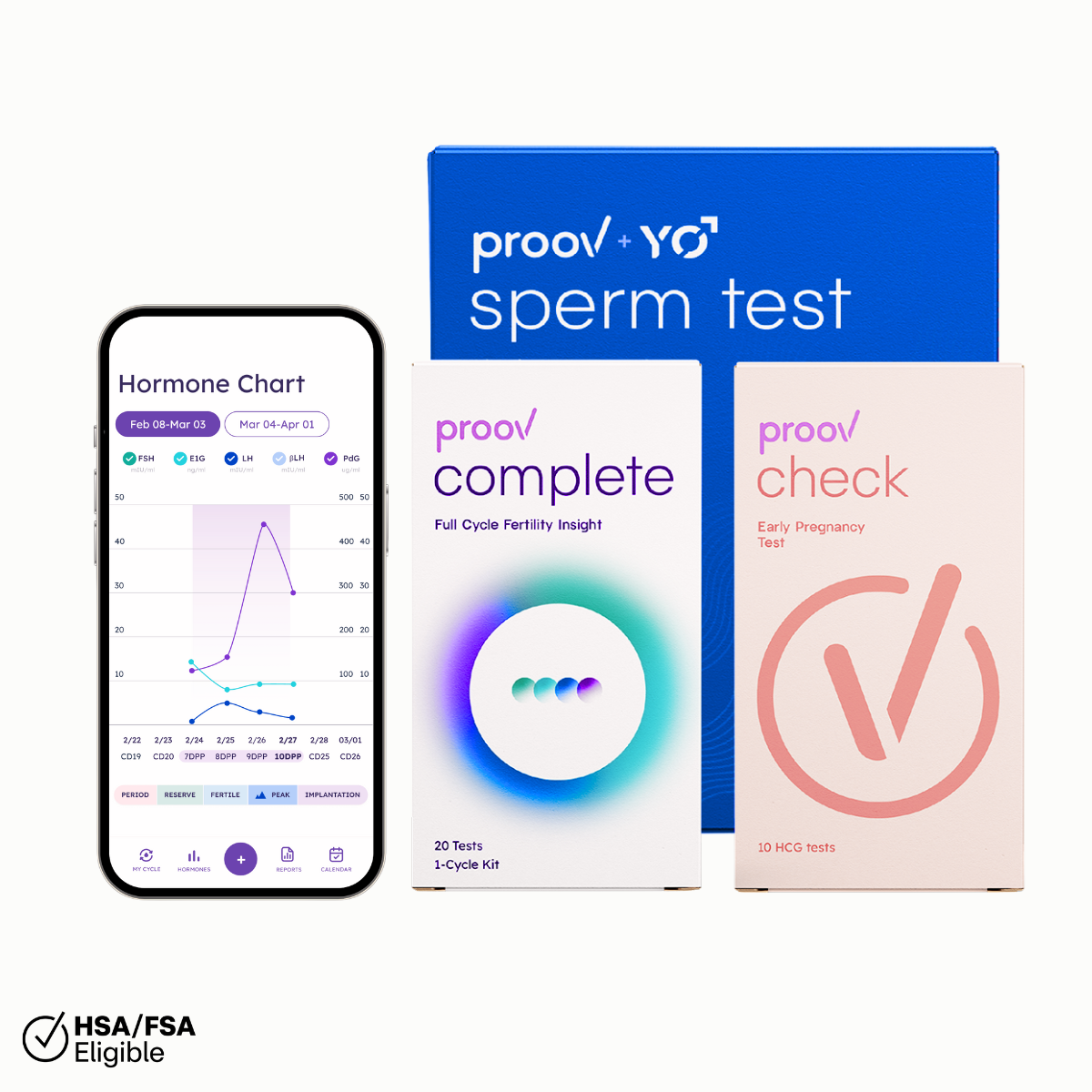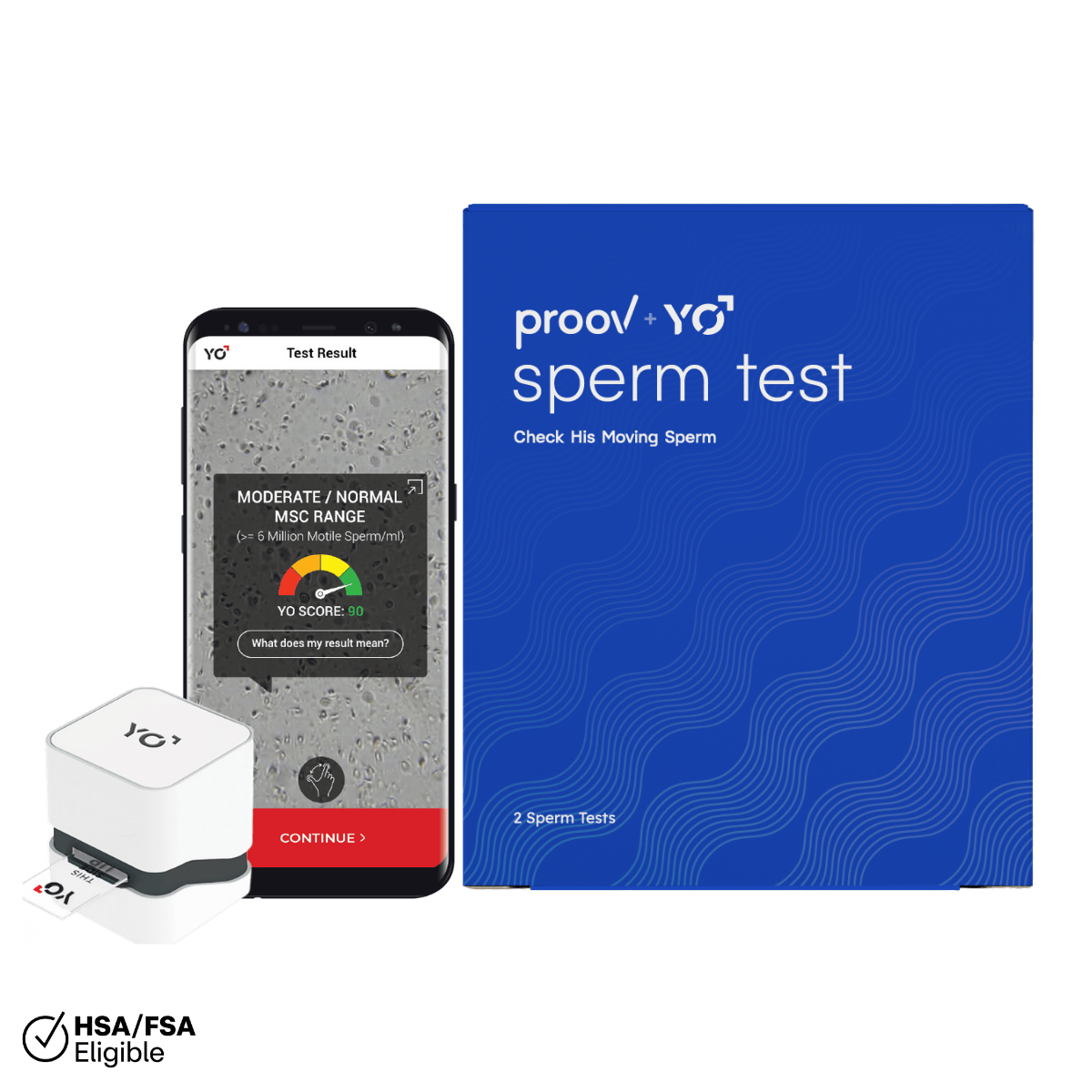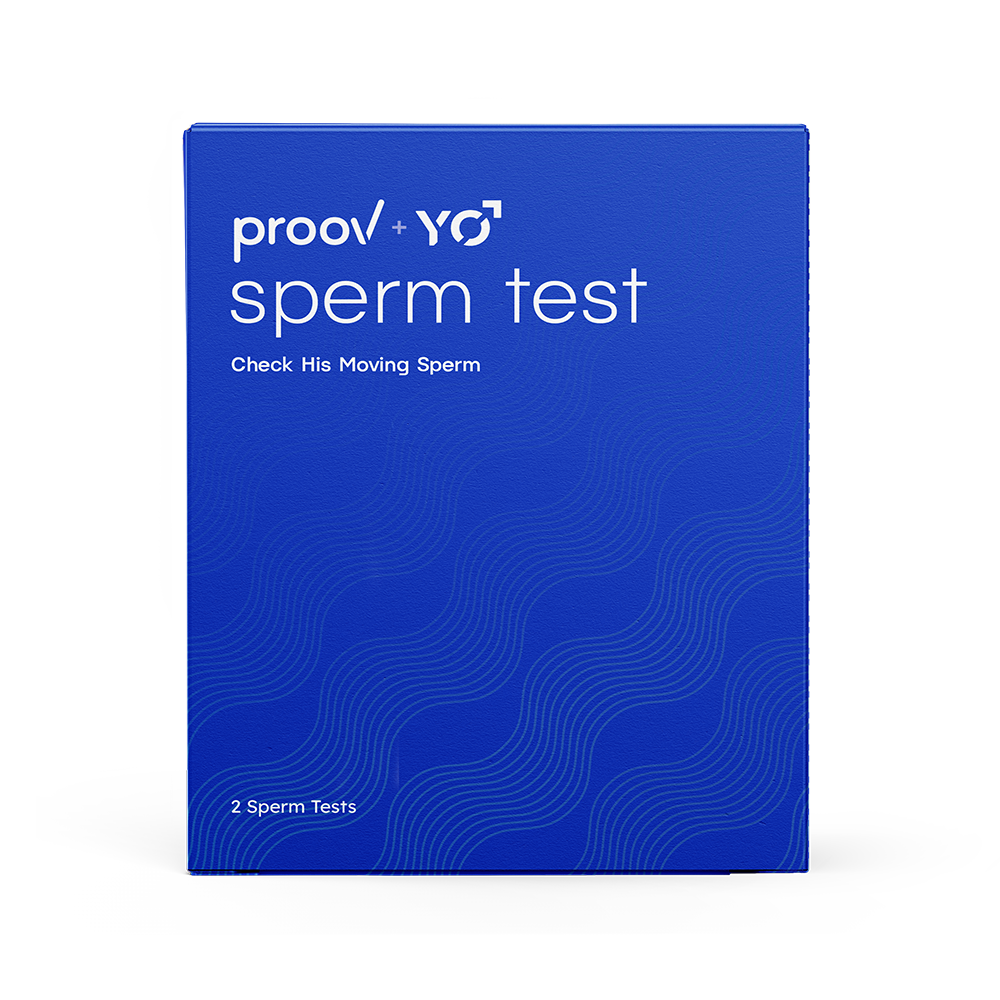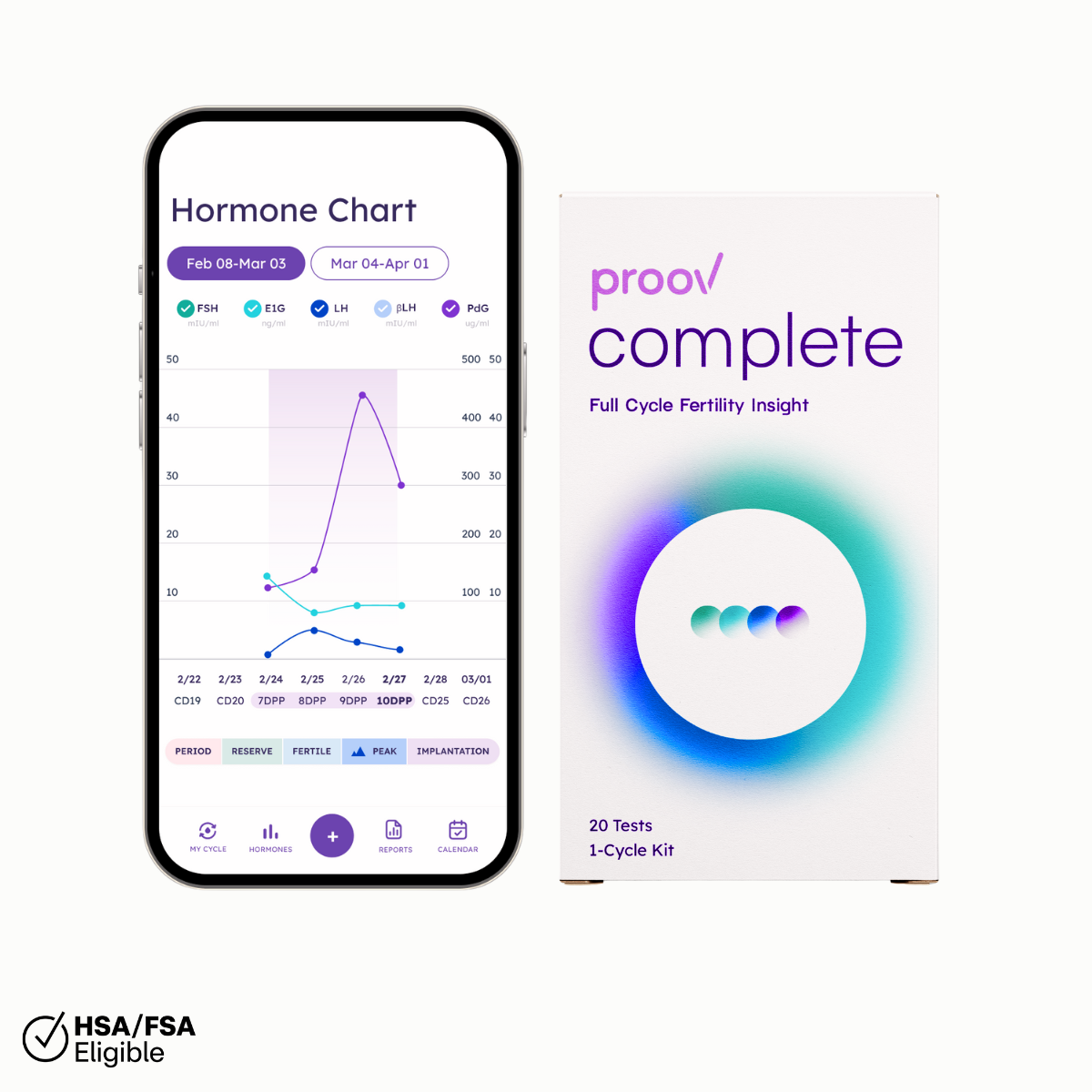You’d think that, having just had a baby, it might be relatively easy to have another one. For better or worse, however, this isn’t always the case, and postpartum fertility can be wildly different than before you became pregnant. So, are you more fertile after having a baby? Read on to find out!
Does your fertility change after giving birth?

The first question to tackle is does your fertility even change after you give birth? The short answer is yes, absolutely! It may only be different for a short time, or it may change pretty dramatically. But let’s start with the basics.
Initially, after birth (or after a miscarriage), your fertility will be suppressed by the high levels of estrogen and progesterone that have been present during pregnancy. It’s common to experience bleeding and discharge, called lochia, for up to six weeks after birth. This isn’t your period, though.
The timing of your first period after pregnancy can vary greatly based on a few things. Ultimately, you may have some spotting or menstrual-like bleeding, but you don’t have your first true period until after your first postpartum ovulation. This is typically six to twelve weeks after delivery if you aren’t breastfeeding. At this point, you are technically fertile, although the first ovulations postpartum can be hard to pinpoint, or irregular–you should still use a method of avoiding pregnancy, though – more on that later!
If you’re breastfeeding, especially exclusive breastfeeding, this typically suppresses fertility for much longer (more like six months, and possibly even longer), as the prolactin and oxytocin released through breastfeeding prevent your menstrual cycle from starting again. In fact, if you’re exclusively breastfeeding, you haven’t had a period yet, and your baby is less than 6 months old and doesn’t use a pacifier, you’re technically using a method of birth control called the Lactational Amenorrhea Method!
Once your fertility returns, your cycles will still be atypical for a while. They may be irregular, have a shortened luteal phase, and result in decreased fertility for a few cycles. Typically by around one year postpartum, your cycles will be regular again (if they were before pregnancy, that is).
So, for most people, fertility will be decreased for anywhere from a few months to two years postpartum, and then return to “normal.” There is a caveat, though, and that’s secondary infertility. If you’ve had one child successfully, it is still possible to experience infertility later, sometimes due to complications from the first birth and sometimes not. Read more about that here if you’re interested.
How to test your fertility after having a baby
If you want to know more about your fertility postpartum, you have a few options! First, if you’re trying to test your fertility in order to avoid pregnancy without using hormonal birth control, you should follow an established fertility awareness-based method with a postpartum protocol (such as the Billings Ovulation Method or the Marquette Model of Natural Family Planning). In this case, follow your method’s rules to understand your fertility.
If you are interested in potentially conceiving again, then you’ll want to wait until your period returns, and then test for ovulation using luteinizing hormone (LH) tests to predict when you’re ovulating. Postpartum ovulations may initially not be successful (that is, progesterone won’t be high enough to actually sustain a pregnancy), so you’ll also want to test PdG, the urinary metabolite of progesterone, with Proov Confirm PdG tests. If your cycles are back to mostly regular, you can also use Proov Complete to test all four menstrual cycle hormones and get an overall sense of your postpartum fertility.
How soon after giving birth can you safely get pregnant again?
Just because you can get pregnant again soon after giving birth doesn’t necessarily mean you should. It’s important to discuss this with your doctor if you have any questions, but in general, it’s recommended that you wait 1.5 to 2 years after giving birth to become pregnant again. It’s especially important that even if you don’t wait 1.5 years, wait at least six months, as pregnancy within six months of a live birth carries significant risks.
Getting pregnant after a miscarriage
If you’ve had a miscarriage, you may be wondering how long you need to wait to try again. In this case, the advice to wait at least six months doesn’t apply. You should wait a few weeks before having intercourse again, but following that period, you can try again whenever you are ready as long as your doctor agrees. It may take a little longer for your cycles to become normal again, and tracking your fertility may help.
Birth control methods right after pregnancy
Even though your fertility will likely be decreased after giving birth, you still need to use some method of avoiding pregnancy as soon as you become sexually active again-a topic your OB/GYN is likely to cover at your 6 week postnatal checkup. Generally, most methods of birth control are safe right after giving birth, although you should consult your doctor to be sure. The exception here is the combined hormonal pill (with estrogen and progesterone), as estrogen can decrease your milk supply if you are breastfeeding. If you use a diaphragm or contraceptive sponge, you may also need to ensure they fit properly now that your body has changed.
If you’re breastfeeding exclusively, you may qualify for the lactational amenhorrea method, a temporary way of avoiding pregnancy as long as your baby is six months old or younger. If following the LAM with perfect use, it can be up to 98% successful in avoiding unintended pregnancies. Once this time period has passed, fertility typically begins to increase again and you should use a method of birth control or fertility awareness if you wish to continue to avoid pregnancy.
So, in conclusion, are you more fertile after having a baby? …Probably not, and you’re likely less fertile at least in the short term (although you still need to think about birth control). So if you’ve been trying again for more than a few months, it may be time to think about some testing to get a better understanding of your cycle hormones after pregnancy.

